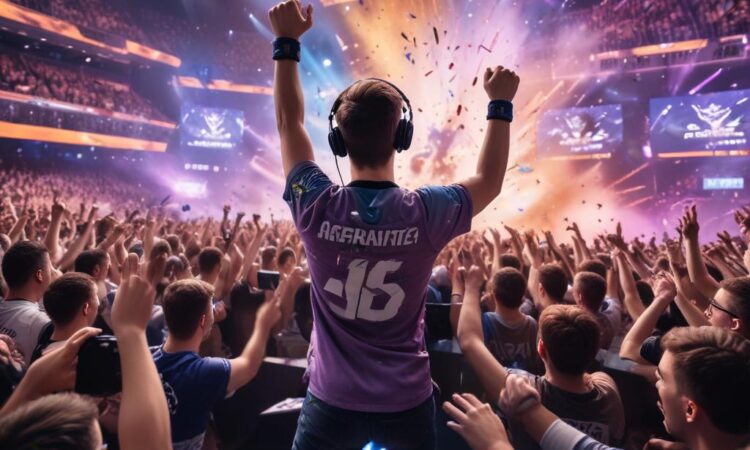The Future of Esports Sponsorship: A Look at Recent Deals and Trends
Several major esports organizations announced new sponsorship deals this week, highlighting the increasing investment from brands in the esports industry and the evolving landscape of esports sponsorships. These deals demonstrate the growing maturity of the esports market and the diverse ways in which brands are looking to engage with esports fans.
A Shift in Focus: From Traditional Sponsorships to Deeper Integrations
Gone are the days when esports sponsorships were limited to simple logo placements on jerseys and team websites. Today, brands are seeking more meaningful and engaging ways to integrate themselves into the esports ecosystem. This trend is driven by a desire to connect with a highly engaged and passionate audience, build brand awareness and loyalty, and ultimately drive business outcomes.
One notable example is the recent partnership between [Esports Organization] and [Brand]. This multi-year agreement goes beyond traditional sponsorship, with [Brand] playing a key role in [Specific Integration, e.g., co-creating content, developing exclusive merchandise, or participating in in-game events]. This deep integration allows [Brand] to reach a wider audience and build a stronger connection with esports fans.
The Rise of Niche Sponsorships and Targeted Marketing
Another key trend is the emergence of niche sponsorships, where brands focus on specific games, regions, or even individual players. This targeted approach allows brands to reach a highly engaged and receptive audience with a shared interest. For example, [Brand] recently partnered with [Esports Player] to create a limited-edition gaming peripheral. This strategic move allows [Brand] to tap into the player’s dedicated fanbase and generate excitement around a specific product.
This trend is particularly evident in mobile gaming, where brands are increasingly leveraging the popularity of mobile esports to reach younger audiences. [Brand] is an example of a company that has successfully implemented a niche sponsorship strategy by focusing on [Specific Mobile Game] and leveraging influencer marketing to connect with mobile esports fans.
The Importance of Data and Measurement in Esports Sponsorships
As esports sponsorships become more sophisticated, brands are increasingly demanding data-driven insights and measurement capabilities. They want to understand the ROI of their esports investments and ensure that their marketing efforts are delivering tangible results. This has led to the development of new tools and technologies that track key performance indicators (KPIs), such as brand awareness, engagement, and sales.
Esports organizations are also embracing data and analytics to provide sponsors with valuable insights into their target audience. By leveraging data, organizations can optimize their sponsorship offerings, tailor marketing campaigns, and ultimately deliver better value to their partners. This data-driven approach is crucial for building long-term relationships and ensuring the sustainability of esports sponsorships.
The Future of Esports Sponsorships: A Look Ahead
The esports sponsorship landscape is constantly evolving, with new trends emerging and existing models being refined. Here are some key areas to watch in the coming years:
- Increased focus on fan engagement and community building. Brands will look beyond traditional marketing tactics and focus on building genuine connections with esports fans through interactive content, fan experiences, and community initiatives.
- The rise of immersive experiences and virtual reality (VR). Esports sponsorships will increasingly leverage immersive technologies, such as VR and augmented reality (AR), to create unique and engaging experiences for fans.
- Greater emphasis on sustainability and social responsibility. Brands will partner with esports organizations that share their values and commit to promoting positive social change.
- The continued growth of mobile esports. Brands will capitalize on the growing popularity of mobile esports to reach younger audiences and drive mobile game adoption.
Conclusion
The future of esports sponsorships is bright, with brands increasingly recognizing the potential of this dynamic industry. As the esports market continues to mature, we can expect to see more innovative and impactful sponsorship deals that drive value for both brands and esports organizations. By leveraging data, focusing on fan engagement, and embracing new technologies, brands can unlock the full potential of esports sponsorship and build lasting connections with the next generation of consumers.

